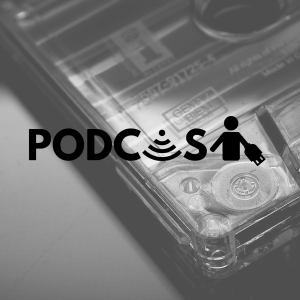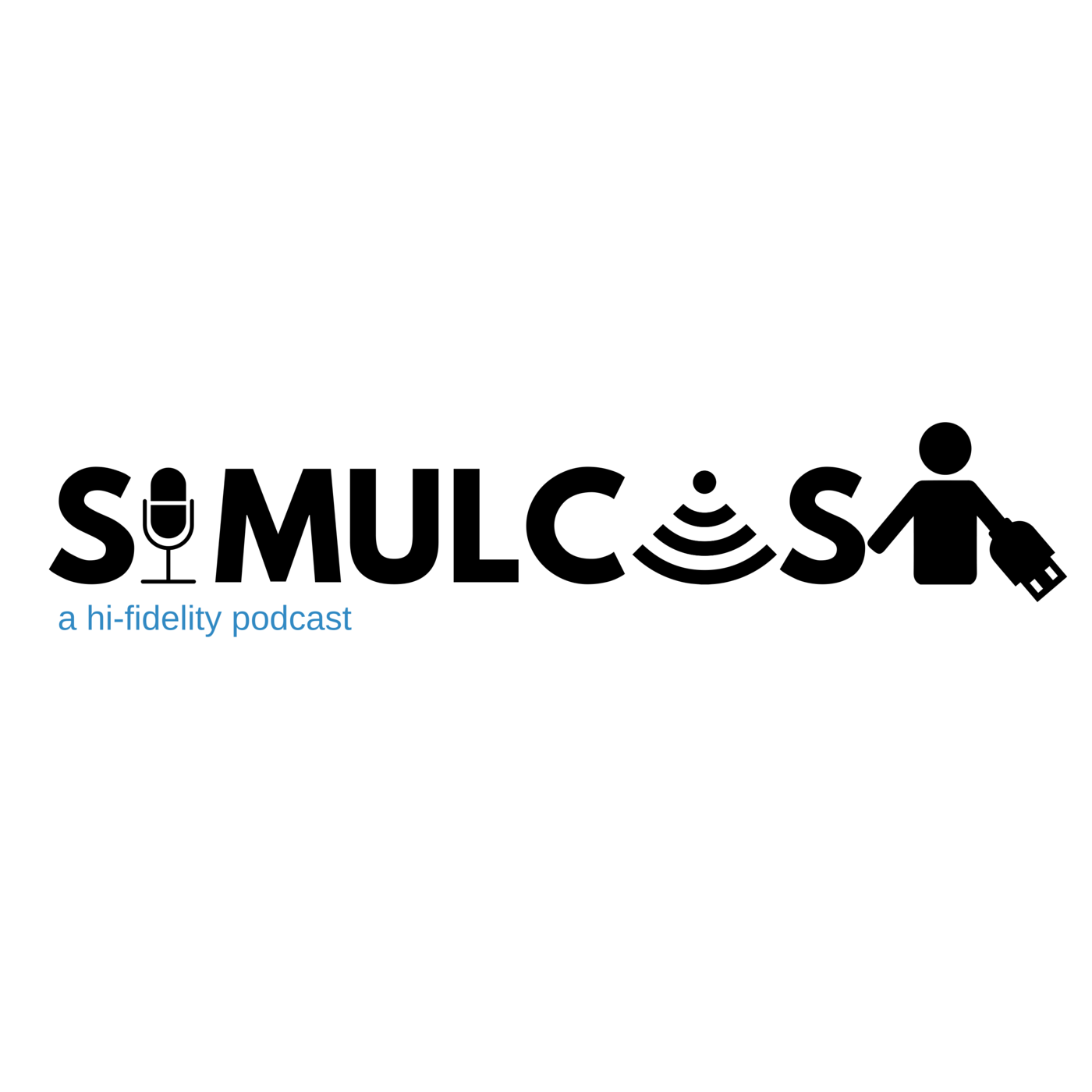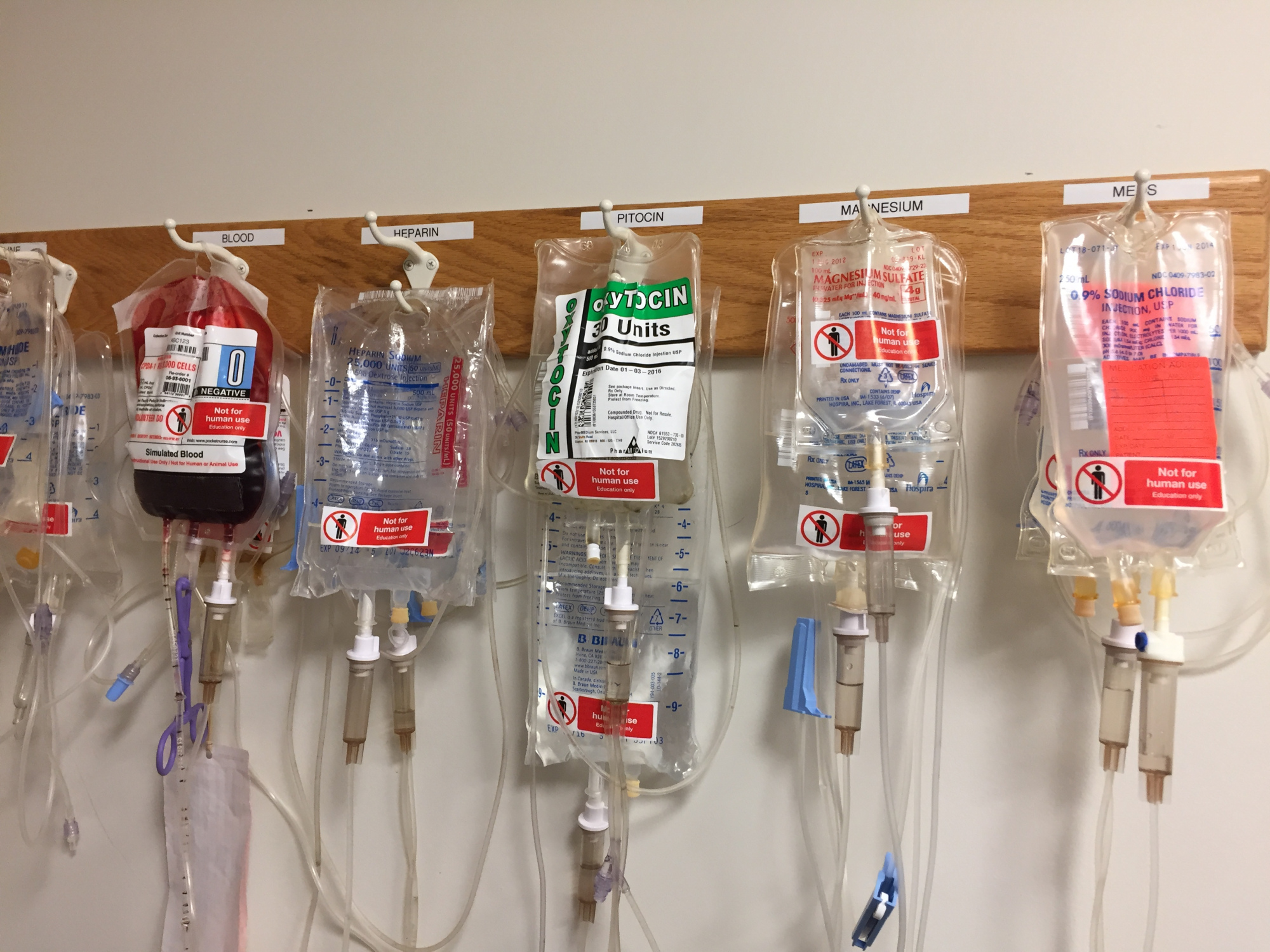Episodes

Thursday Feb 14, 2019
68 - Ben & Vic at IMSH with KT Waxman, Komal Bajaj & James Leung
Thursday Feb 14, 2019
Thursday Feb 14, 2019
Ben and Vic at IMSH – podcast one
The International Meeting for Simulation in Healthcare (IMSH) is the biggest sim conference in the world. This year it was held in San Antonio, Texas, USA and Simulcast was a podcast partner for the meeting. Over the next few weeks, we’ll release five podcasts of conference highlights.
Ben and Vic interview speakers, attendees, organisers, researchers, tech gurus and educators, and bring you some of our perspectives on what are useful lessons for our simulation practice.
I this first instalment, we hear from the incoming president of the Society for Simulation in Healthcare (SSH), KT Waxman (@KTWaxman). Ben interviewed an enthusiastic Komal Bajaj (@KomalBajajMD) about the Women in Leadership pre-conference activity, and James Leung (@drjscleung) from the Impacts group on paediatric simulation research.
We heard more from our friend Stuart Rose (@INFOdebriefing) on clinical debriefing, and reflected on the opening plenary.

Sunday Dec 23, 2018
67 - Simulcast Journal Club Podcast Nov/Dec 2018
Sunday Dec 23, 2018
Sunday Dec 23, 2018
Simulcast Journal Club podcast November 2018 episode
Ben and Vic discuss the paper of the month, including expert commentary from our own Jesse Spurr! Is this really the holy grail of ‘proof’ for insitu sim?
Josey, K., Smith, M., Kayani, A., Young, G., Kasperski, M., Farrer, P., Gerkin, R., Theodorou, A. and Raschke, R. (2018). Hospitals with more-active participation in conducting standardized in-situ mock codes have improved survival after in-hospital cardiopulmonary arrest. Resuscitation, 133, pp.47-52.
We also discussed 3 other papers, with a theme of scenario/ simulation design.
The first two were focused on complexity science.
- Launer J. Complexity made simple. Postgrad Med J 2018;94:611–612
- Gormley, Gerard and Tara J. Fenwick. Learning to manage complexity through simulation: students’ challenges and possible strategies. Perspectives on medical education (2016).
On this topic, Jesse reminded us of this great post from Chris Hicks (@HumanFactOrz) https://emcrit.org/emcrit/complexity-of-simple/
And finally – local work from the team at Mater hospital, including @ErinlW_ and @SJanssensSimOG in Brisbane that adds to our understanding of realism, especially in procedural simulation.
- Wilson E, Hewett DG2, Jolly BC, Janssens S, Beckmann MM. Is that realistic? The development of a realism assessment questionnaire and its application in appraising three simulators for a gynaecology procedure. Adv Simul 2018 Nov 8;3:21
Thanks again to our listeners and contributors for a great year in 2018
Vic, Ben and Jesse

Monday Dec 10, 2018
66 - Advances in Simulation: Simulation Safety First
Monday Dec 10, 2018
Monday Dec 10, 2018
In this episode of our continuing collaboration with Advances in Simulation, Victoria takes the helm and interviews two brilliant guests about a high profile, multi-journal simultaneous publication:
Advances in Simulation
Journal of the Society for Simulation in Healthcare
Journal of Surgical Simulation
It is with great pleasure that we have Dan Raemer, one of the authors of the editorial ‘Simulation Safety First. An Imperative’ as guest today. Dan Raemer has had a long career in simulation and medical education spanning almost 40 years. He is a bioengineer by training and been a member of a surgery or anesthesiology department for his entire working life. Dan was the Chair of the Founding Board of Overseers for the Society for Simulation in Healthcare and was it’s first President. Now in partial retirement, Dan, along with a nurse educator, Ann Mullen, and a renowned anesthesiologist, Alex Hannenberg, all from Boston, USA have started an education-oriented foundation to promote simulation safety.
We are also lucky to have Kara Allen along to discuss. Kara is an anaesthetist who in involved with inter professional simulation, including education and systems testing. She developed the CRASH and STAR courses which now run across Australia and New Zealand, helping critical care specialists navigate career transitions and return to work after leave. This has led her to work in a number of simulation settings, from stand-alone centres to simulation facilities embedded in clinical settings.
Victoria, Dan and Kara, traverse the unintended harms from simulation and discuss the equal harms of not using simulation as a translational tool.
If this sound familiar to Simulcast listeners, it is because Vic interviewed Ann Mullen (one of the authors of this article) back in October 2017 about hers and Dan's project, Foundations for Healthcare Simulation Safety.
So read the article, think about your simulation safety and take the pledge to improve.
The Podcast
Related Articles
https://icenetblog.royalcollege.ca/2017/12/15/simulation-and-patient-safety-a-complex-relationship/
https://healthcaresimulationsafety.org/
https://soundcloud.com/medicalsimulation/episode-007-dans-journey-to-the-dark-side

Wednesday Dec 05, 2018
65 - Simulcast Goes To IMSH
Wednesday Dec 05, 2018
Wednesday Dec 05, 2018
Simulcast goes to IMSH!
The International Meeting on Simulation in Healthcare (IMSH) will be in San Antonio, TX, USA in January 26-30th, 2019.
Simulcast has partnered with the Society for Simulation in Healthcare (SSH) to cover the event for our listeners, and Ben and Vic will be bringing you the highlights of plenary talks, research updates and the latest technology from the Expo Hall.
We spoke to Joseph Lopreiato, the current President of SSH about the planned event highlights, the city of San Antonio, and building the healthcare simulation community.
For more details about the event, check out the conference website and follow #IMSH2019 on social media.
vb

Monday Nov 05, 2018
64 - Simulcast Journal Club Podcast October 2018
Monday Nov 05, 2018
Monday Nov 05, 2018
Ben and Vic discuss the paper of the month, including expert commentary from Dr Marc Berg.
Resuscitation Education Science: Educational Strategies to Improve Outcomes From Cardiac Arrest: A Scientific Statement From the American Heart Association
We also discussed 3 other papers, with a theme of assessment and feedback
- Hendrik Friederichs, Bernhard Marschall & Anne Weissenstein (2018) Simulation-based mastery learning in medical students: Skill retention at 1-year follow up, Medical Teacher, DOI: 10.1080/0142159X.2018.1503411
- Molloy, E. and Bearman, M. (2018), Embracing the tension between vulnerability and credibility: ‘intellectual candour’ in health professions education. Med Educ. . doi:10.1111/medu.13649
- Jeffrey N. Siegelman, Michelle Lall, Lindsay Lee, Tim P. Moran, Joshua Wallenstein, and Bijal Shah (2018) Gender Bias in Simulation-Based Assessments of Emergency Medicine Residents. Journal of Graduate Medical Education: August 2018, Vol. 10, No. 4, pp. 411-415.
(and also discussed here by our friends at em simcases https://emsimcases.com/2018/10/23/limiting-gender-bias-in-simulation-assessment/ )

Wednesday Oct 17, 2018
63 - Just Say 'No' to Simulation - Myths and Fails
Wednesday Oct 17, 2018
Wednesday Oct 17, 2018
This episode was recorded live at Markham Stouffvile Hospital in Canada. Victoria and Jesse were generously hosted by the hospital to share some lessons learned in simulation programs. This presentation was initially developed for a symposium in Dunedin in March 2018. We decide to reprise it, but instead of a presentation - Simulcast Live. Hope you enjoy and we'd love to here some of your lessons learned and keep adding to the myths and fails.
Thanks to Justin Morgenstern @First10EM for making the visit happen. We had a great time and the hospitality was amazing.

Sunday Oct 07, 2018
62 - Healthcare Consumers and In Situ Simulation
Sunday Oct 07, 2018
Sunday Oct 07, 2018
In situ simulation is increasingly popular for all the right reasons – highly realistic training with opportunities for team and systems testing. We’ve recognized there are risks, especially disruption of service and physical safety. But what about those patient and families ‘exposed’ to ISS? What do they think about it? What are their risks? And what should we do about it? Are there opportunities we haven’t yet realized?
I spoke with Stephanie Barwick (@InSituSteph) and Damian Roland (@Damian_Roland) about this topic – how they got interested, what kind of research are they doing, and what recommendations do they have for our practice.
vb

Thursday Oct 04, 2018
61 - Simulcast Journal Club Podcast September 2018
Thursday Oct 04, 2018
Thursday Oct 04, 2018
Welcome to the Simulcast Journal Club Podcast and monthly wrap post.
Please read our pdf summary of the Journal Club article, the month’s discussion and our expert commentary here.
Ben and Vic discuss the paper of the month, including expert commentary from Dr Gabriel Reedy (@gabereedy).
Cheng, A., Palaganas, J., Eppich, W., Rudolph, J., Robinson, T. and Grant, V. (2015) Co-Debriefing for Simulation Based Education” Simulation in Healthcare: The Journal of the Society for Simulation in Healthcare, 10(2), pp.69-75.
And we talked about a few other sim papers across a range of topics and research methods,
Yogarajah A, Verma MM, Claro B, et al Construction of a reusable, high-fidelity model for simulation of extracorporeal cardiopulmonary resuscitation. BMJ Stel August 2018 doi:10.1136/bmjstel-2018-000389
Wilbanks, Bryan A., PhD, DNP; Watts, Penni I., PhD; Epps, Chad A., MD Electronic Health Records in Simulation Education: Literature Review and Synthesis. Simulation in Healthcare: August 2018 - Volume 13 - Issue 4 - p 261–267
Serag-Bolos ES, Shaeer KM, Gelot SR, et al Assessing pharmacy students’ preferences with implementing electronic medical records into the pharmacy curriculum. BMJ Simulation and Technology Enhanced Learning Published Online First: 22 August 2018. doi: 10.1136/bmjstel-2018-000383
So we’ll be back at the end of October with our wrap – join the discussion at simulationpodcast.com
Victoria

Friday Sep 14, 2018
60 - CMS & Simulcast Translational Sim
Friday Sep 14, 2018
Friday Sep 14, 2018
Jenny Rudolph interviews Victoria Brazil: Translational Simulation
Since the start of the modern simulation era, many in the healthcare simulation community have taken a “Field of Dreams” approach to our simulation efforts, believing, like the character Ray Kinsella in the movie of the same name, that we “If we build it, they will come.” Often however, “buy-in” to simulation programs is just as difficult as getting real people to come to a baseball diamond in the middle of an Iowa cornfield. Simulation increasingly competes with a variety of other healthcare education, quality, and safety efforts for resources.
In this podcast, Jenny Rudolph talks with Victoria Brazil talk about Victoria’s alternate approach to positioning simulation in healthcare. Rather than creating simulation programs and then hoping people will come, instead, she argues, we need to solve real clinical problems, using goals co-created with the colleagues we aim to serve. This work focuses on clinical impact and culture change via what she calls “translational simulation. Translational simulation focuses our attention on identifying and addressing high yield problems at the “coal face” of clinical care. The focus is on simulation interventions that stretch outcomes beyond clinical and teamwork skills to improving clinical benchmarks, clinical outcomes and the patient journey.
Is this the same age-old exhortation to focus on patient quality and safety or something different?
Join the Center for Medical Simulation and Simulcast as we explore Victoria’s most recent publication on translational simulation and links to work by Bill McGaghie, and other exemplary work in the field.
Victoria Brazil is an emergency physician and host of Simulcast, director of the Gold Coast Simulation Service in Queensland Australia, and Professor at Bond University Medical School.
Jenny Rudolph is an organizational behavior scholar, executive director of the Center for Medical Simulation in Boston, and an Assistant Professor of Anaesthesia at Harvard Medical School and Massachusetts General Hospital.
PODCAST LINK
The links and articles below provide detail on a number of the studies and processes Jenny and Victoria discuss in the podcast.
Translational simulation: not “where?” but “why?” A functional view of in situ simulation.
Brazil, V. Advances in Simulation (2017).
https://advancesinsimulation.biomedcentral.com/articles/10.1186/s41077-017-0052-3
For more information on the theory and measurement of “relational coordination” which Brazil, Purdy and team will be using to study the impact of translational simulation take a look at the work of Jody Hoffer Gittell and team at the Relational Coordination Research Collaborative website:
Bill McGaghie’s seminal article on “Medical Education Research As Translational Science” is a must read for educators designing or redesigning simulation for clinical impact.
McGaghie, W. (2010)
http://stm.sciencemag.org/content/2/19/19cm8
Some of the issues regarding translational simulation might be terminology - as discussed here
( http://simulationpodcast.com/53-2/ )
Examples of translational simulation in action
To keep women from dying in childbirth, look to California
Montagne, R. NPR (2018)
https://www.npr.org/2018/07/29/632702896/to-keep-women-from-dying-in-childbirth-look-to-california
The California Maternal Quality Care Collaborative
When every second counts: How a simulation dramatically improved blood delivery times for trauma patients
Daugherty, A. (2018)
http://www.stmichaelshospital.com/media/detail.php?source=hospital_news/2018/0813

Thursday Aug 30, 2018
59 - Simulcast Journal Club August 2018
Thursday Aug 30, 2018
Thursday Aug 30, 2018
Welcome to the Simulcast Journal Club Podcast and monthly wrap post.
Please read our pdf summary of the Journal Club article, the month’s discussion and our expert commentary here.

This month's journal club podcast was a special live recording from on stage at Don't Forget the Bubbles conference in Melbourne. Ben, Victoria and Jesse were handed a whole concurrent session to deliver a Simulcast Presents Play School session. One of these sessions saw Jesse join Vic and Ben for the August Journal Club Live - excuse the few ums and ahs, crowd coughs and babies babbling (yep DFTB lead the way in being a parent and baby friendly conference. We broke through the high cognitive load to hopefully deliver the normal JC gold.
We discussed Intellectual Streaking in depth. Listen in for Ben's most risqué JC commentary yet.
Intellectual streaking: The value of teachers exposing minds (and hearts)
Bearman, M. and Molloy, E. (2017).
Medical Teacher, 39(12), pp.1284-1285.
Victoria then brought us the Sim Cup article to discuss.
A novel simulation competition format as an effective instructional tool in post-graduate medical education by Ingrassia et al. Advances in Simulation 2018.
https://advancesinsimulation.biomedcentral.com/articles/10.1186/s41077-018-0075-4
We then previewed the September Journal club, another classic debriefing paper so make sure to tune in.
Cheers,
Jesse



